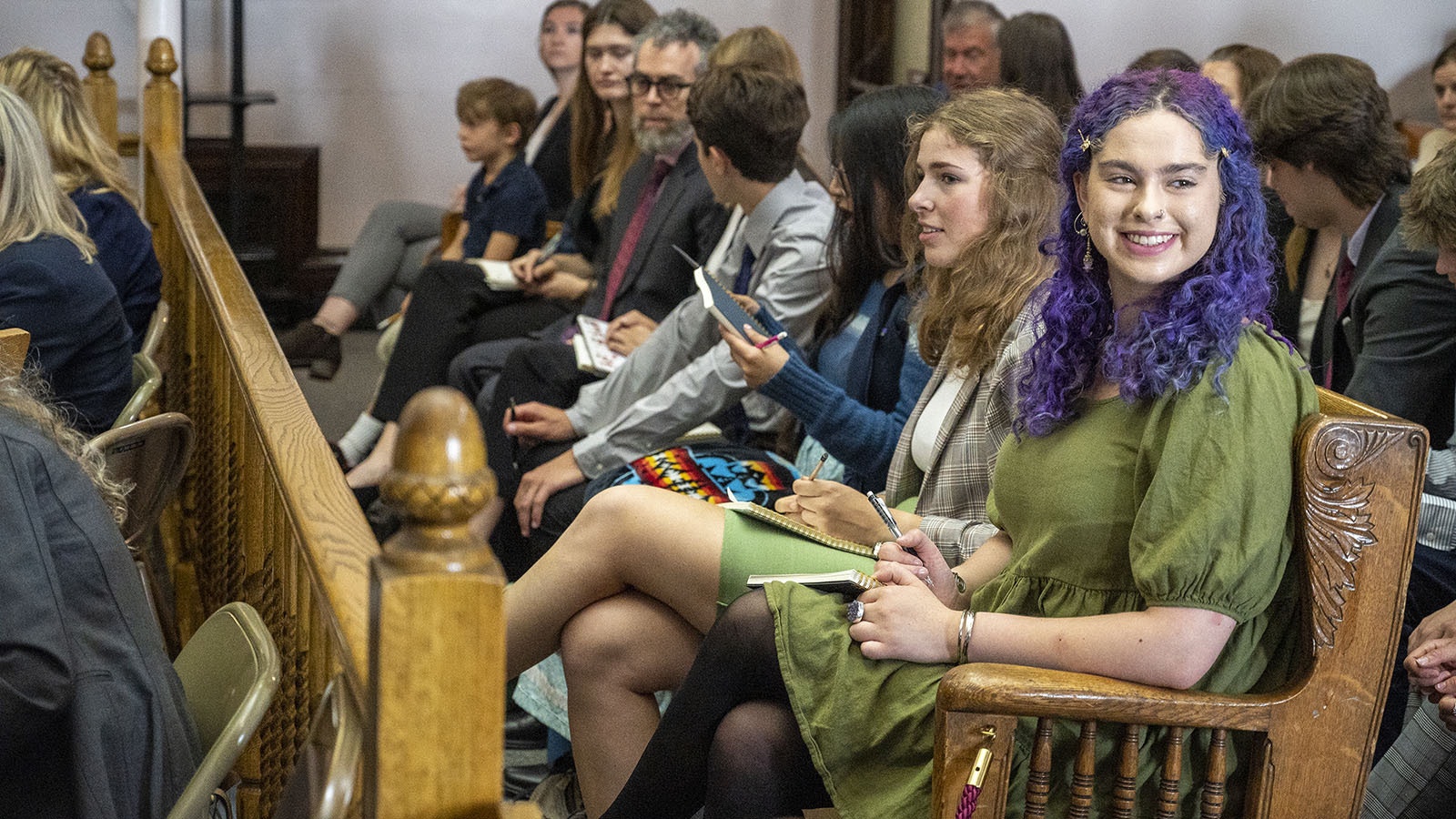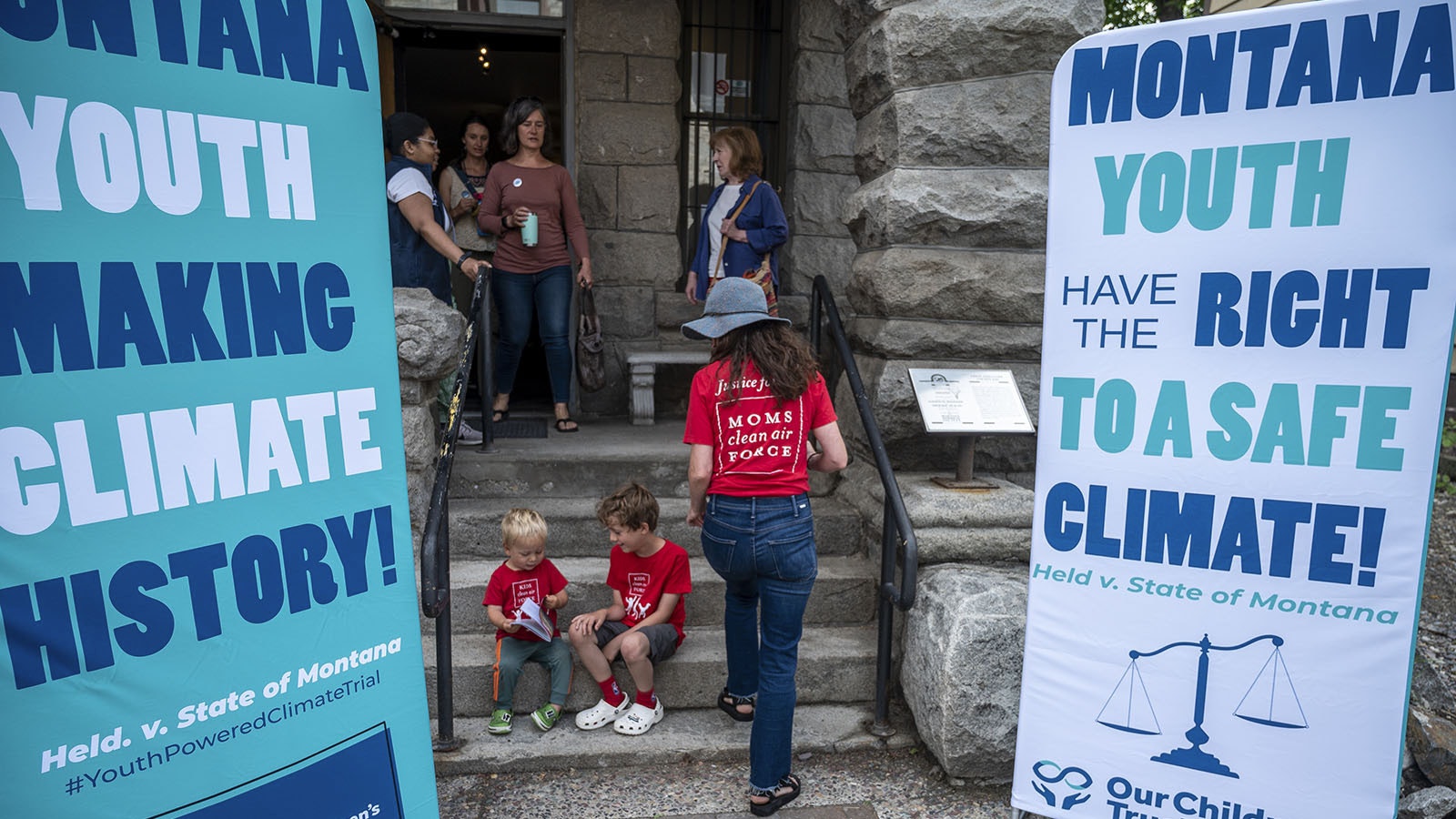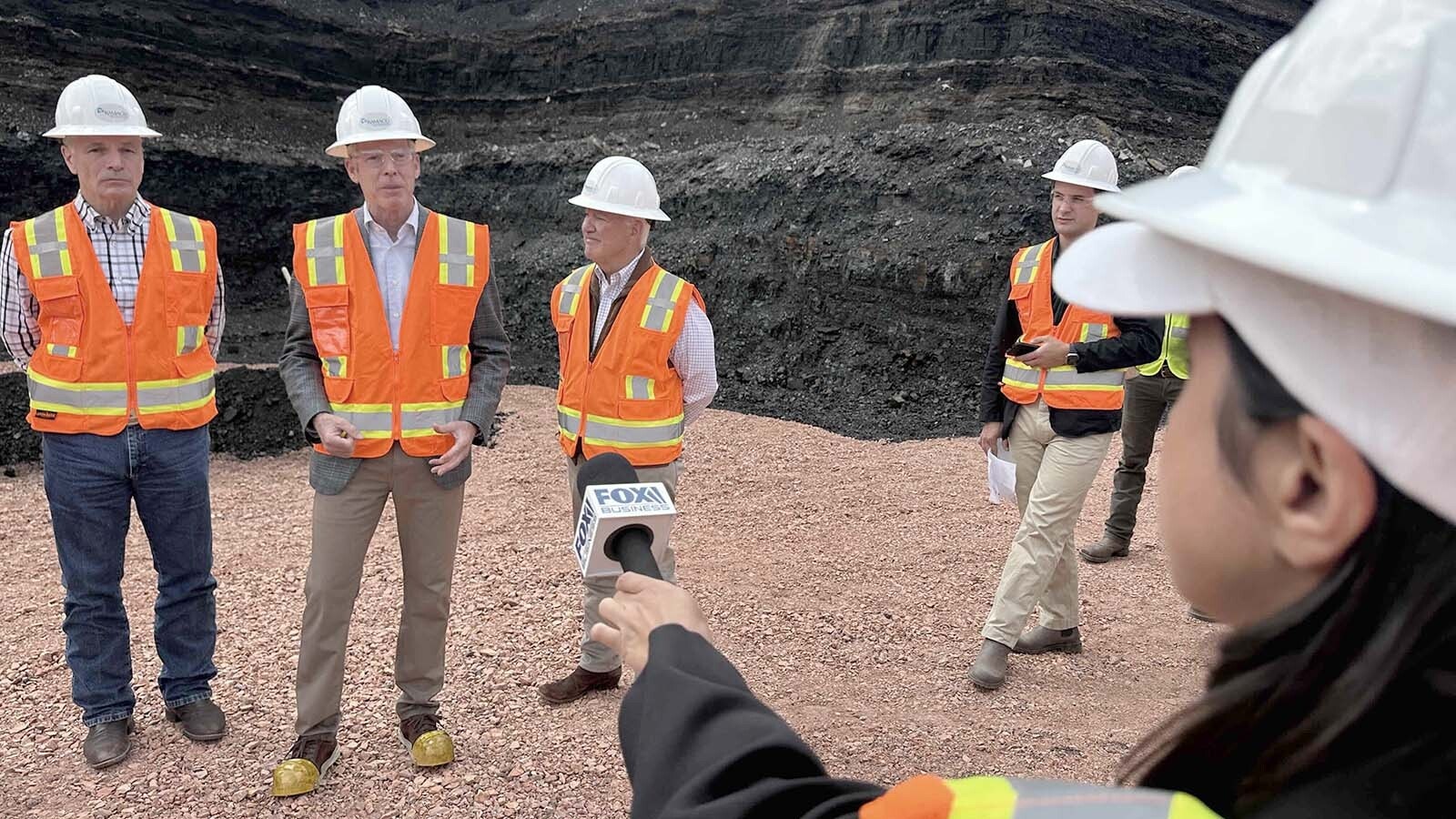A Helena court heard closing arguments Tuesday in a lawsuit brought by 16 young people accusing the state of Montana of violating their constitutional right to a clean environment.
It’s a case that may have broad implications for energy policy in the United States.
Montana state law restricts state agencies from considering the impact of greenhouse gas emissions when permitting energy production projects. Through their attorneys, the youth argue that the state is violating their rights by allowing those projects.
The state argued that agencies are just following state law, and the plaintiffs are circumnavigating the legislative process and the will of the voters by trying to force a change in policy through litigation.
National Implications
While the case is specific to Montana law, it’s received extensive national coverage, including from The Associated Press, which received an $8 million donation in 2022 to cover climate issues from various organizations promoting renewable energy and an end to fossil fuel use.
Activists view the case as a chance to put the fossil fuel industry on trial for what they maintain is a “climate crisis.”
“This case has received national attention in part because it has been billed, or at least perceived, as a sort of referendum on climate change,” said Montana Assistant Attorney General Michael Russell in his closing remarks.
Should the court grant the plaintiffs a win in the case, it could bolster similar efforts to use the court system to try to force state governments to eliminate the use of fossil fuels.
Causes And Remedies
Russell argued that climate change is an issue much larger than the state could address.
He explained that the consensus that carbon dioxide emissions cause a warming trend was never at issue, despite testimony from the plaintiffs throughout the week stressing that point.
No testimony, Russell said, was provided that quantified the exact impact of Montana’s laws on the harms the plaintiffs allege as a result of climate change.
Russell said that a causal link between the state law at issue and the injuries the plaintiffs allege should be a basic requirement for any judgment.
“The state’s focus on causation and addressability is not because it disrespects the plaintiffs or wants to shirk its responsibility under Montana law. It’s because the law demands it,” Russell said.
Russell said that the plaintiffs’ arguments didn’t demonstrate there’s an automatic standard that the constitutional guarantees of a clean environment are violated by a failure to evaluate emissions in permitting, as guided by state law.

Evading Democracy
Russell said that none of the expert testimonies the plaintiffs provided addressed these points, and that during cross examination, experts avoided commenting on the question.
The testimony they gave that Montana should take the lead in dealing with climate change was not a scientific opinion but a personal one, he said.
“They’re social and political statements,” Russell said.
Russell said the grievances the plaintiffs aired belong in the Montana Legislature and not a court of law. He encouraged them to lobby their legislators and continue to advocate their position.
“The plaintiffs may not simply assume preferential status under the law to evade the democratic process and force or policy views on all Montanans without their consent or participation,” Russell said.
Plaintiffs’ Remarks
The plaintiffs representation was provided by an anti-fossil fuel nonprofit called Our Children’s Trust, which raised nearly $17 million between 2017 and 2021, according to tax documents.
As Nate Bellinger, senior attorney for Our Children's Trust, gave his closing remarks Tuesday, the court was shown photos of the 16 young people who testified during the trial. The photos appeared to have been taken when they were much younger.
Throughout the trial, many of the youths testified about being affected by what they claim is a “climate crisis.” Their testimony spoke of various events, such as wildfires and floods, which they argue were a direct result of the use of fossil fuels.
In his remarks, Bellinger claimed that state law forces “Montana agencies to turn a blind eye to climate change’s catastrophic impacts.”
Energy Transition
Bellinger said the case is about a responsibility the state has to transition away from fossil fuels.
The plaintiffs “know the transition to clean renewable energy is coming,” Bellinger said. “But they spoke of how proud they would be if it was their state that led this transition.”
Among the experts to testify to that point was Mark Jacobson, director of the atmosphere and energy program at Stanford University. Jacobson has a long career of producing research finding that on paper, America’s energy grid can run entirely off wind, solar and hydroelectric.
Cowboy State Daily asked Jacobson in May if any industrialized population of at least 10,000 people had managed to get all its energy year-round primarily from wind, solar and energy storage. He was unable to show any sizable population had achieved this goal, except nations and U.S. states whose geography provided them with extensive backup from hydroelectric power, which is generally opposed by environmentalists.
Jacobson also added that California had managed to get its power from wind, solar and hydroelectric for over an hour one weekend this year.
Expert Testimony
While Jacobson was the plaintiff’s expert witness to argue that fossil fuels are no longer necessary, other researchers have dug into Jacobson’s work and found serious flaws.
In September 2017, a leading scientific journal published a critique of Jacobson’s 2015 study concluding that renewable sources could provide 100% of the nation’s energy. Jacobson filed a $10 million defamation lawsuit on the journal and the study’s lead author. Jacobson dropped the case several months later.
The defendants later sued Jacobson under anti-SLAPP laws, which are designed to protect First Amendment rights against meritless lawsuits, and Jacobson was ordered to pay about $500,000 in legal fees to the defendants. He is appealing the judgment.
Every Ton Matters
Despite Montana’s total emissions being a small contribution to the atmospheric concentration of carbon dioxide, Bellinger said every ton of the greenhouse gas matters, based on testimony from the plaintiffs’ experts.
He argued that the state should declare a constitutional requirement that a concentration of carbon dioxide in the atmosphere should not exceed 350 million parts per million. How Montana could do anything to produce that outcome, Bellinger didn’t say.
Bellinger concluded his remarks by suggesting that the court had an obligation to intervene against the state’s Legislature.
“It’s worth remembering other times in our nation’s history when the political process didn’t work to protect basic human rights,” Bellinger said.
As examples, he pointed to segregation, women’s rights and marriage.
How those issues compare to the state permitting projects that produce products people willingly buy, Bellinger didn’t explain.
State’s Expert
Montana had scheduled testimony from climate scientist Dr. Judith Curry, but the state’s attorneys decided last week not to call her.
Curry is a moderate voice in the debate on climate issues. In her latest book, “Climate Uncertainty and Risk,” she argues that climate change is an exceedingly complex issue, both in terms of the science and its impacts, as well as the policies aimed at addressing it.
Curry has argued that in America’s zeal to eliminate carbon dioxide, we’re jeopardizing our nation’s energy supply and doing more harm than good.
For these kinds of viewpoints, Curry has been wrongly labeled as denying the scientific consensus on anthropogenic global warming, such as this report on the case by National Public Radio on Monday.
The state didn’t explain its reasoning for the decision not to call Curry, but it’s normal in cases for the strategies to change throughout a trial. The plaintiff’s withdrew a report they claimed refuted Curry’s testimony.





